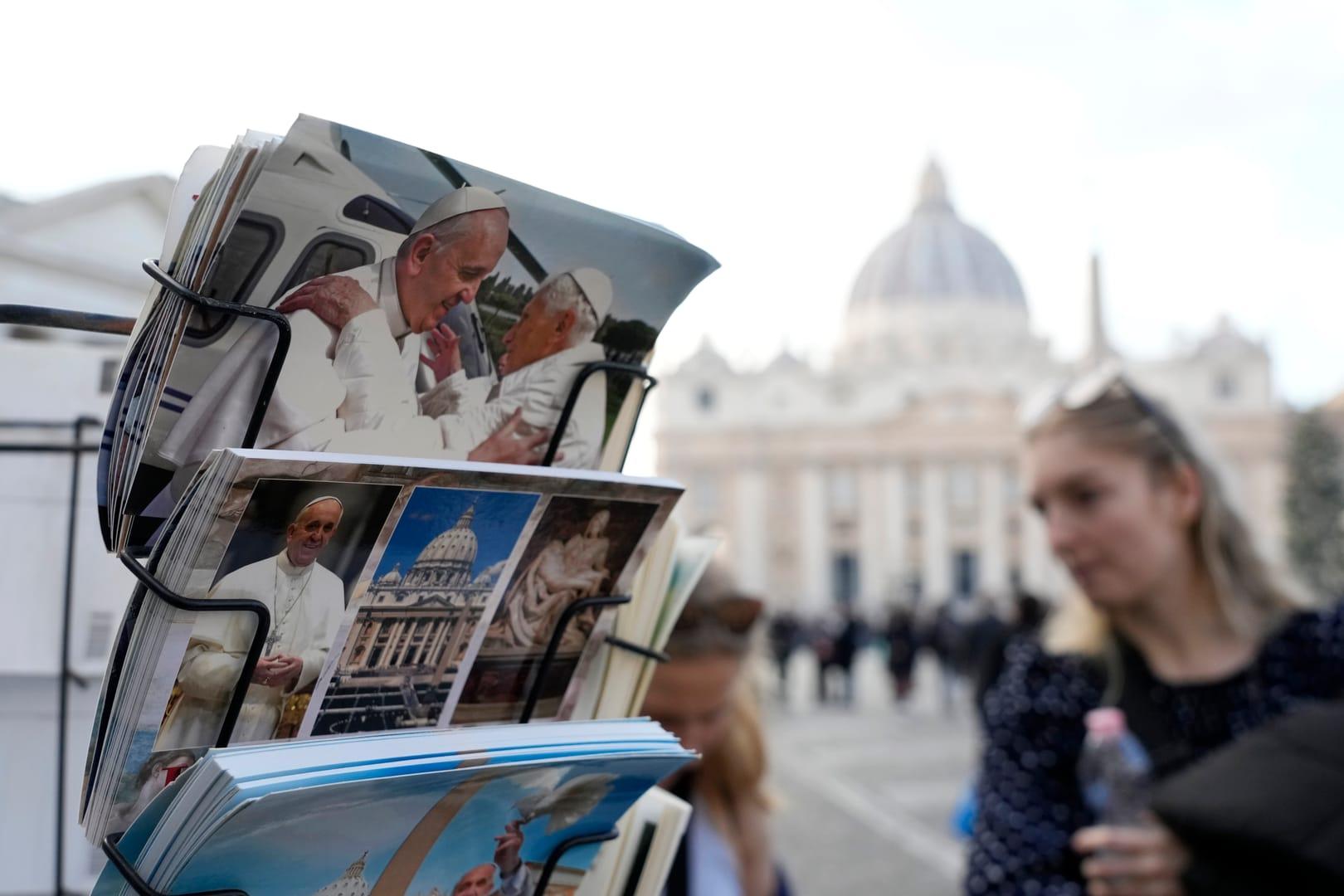ROME – From health challenges to curial reform, from war to diplomacy, from fresh abuse crises to church persecution and the potential death of his predecessor, 2022 has been a big, noisy, and uneven year for Pope Francis and the Vatican.
Not only has the pontiff faced some of his most limiting health problems yet – including being forced to cancel an international trip for the first time due to ongoing knee troubles, which have largely confined him to a wheelchair or the use of a cane – but he has also faced repeated criticism over his handling of China and the war in Ukraine.
Francis and his Jesuit order have also faced scrutiny over the handling of new abuse crises, including allegations surrounding a prominent member whose artwork is displayed on chapels and church facades in the Vatican and on major shrines throughout the world.
In many areas of the world, church leaders are being persecuted, and despite the pope’s efforts to assist in negotiating a ceasefire to the war in Ukraine, there appears to be no end in sight.
Yet this year has also brought some triumphs, with Pope Francis finally rolling out reforms of the Roman Curia, naming new cardinals, bolstering his global synodal consultation process, and plowing ahead with a busy schedule despite his physical limitations.
The images featured here offer glimpses of some of the key moments along the way.
January
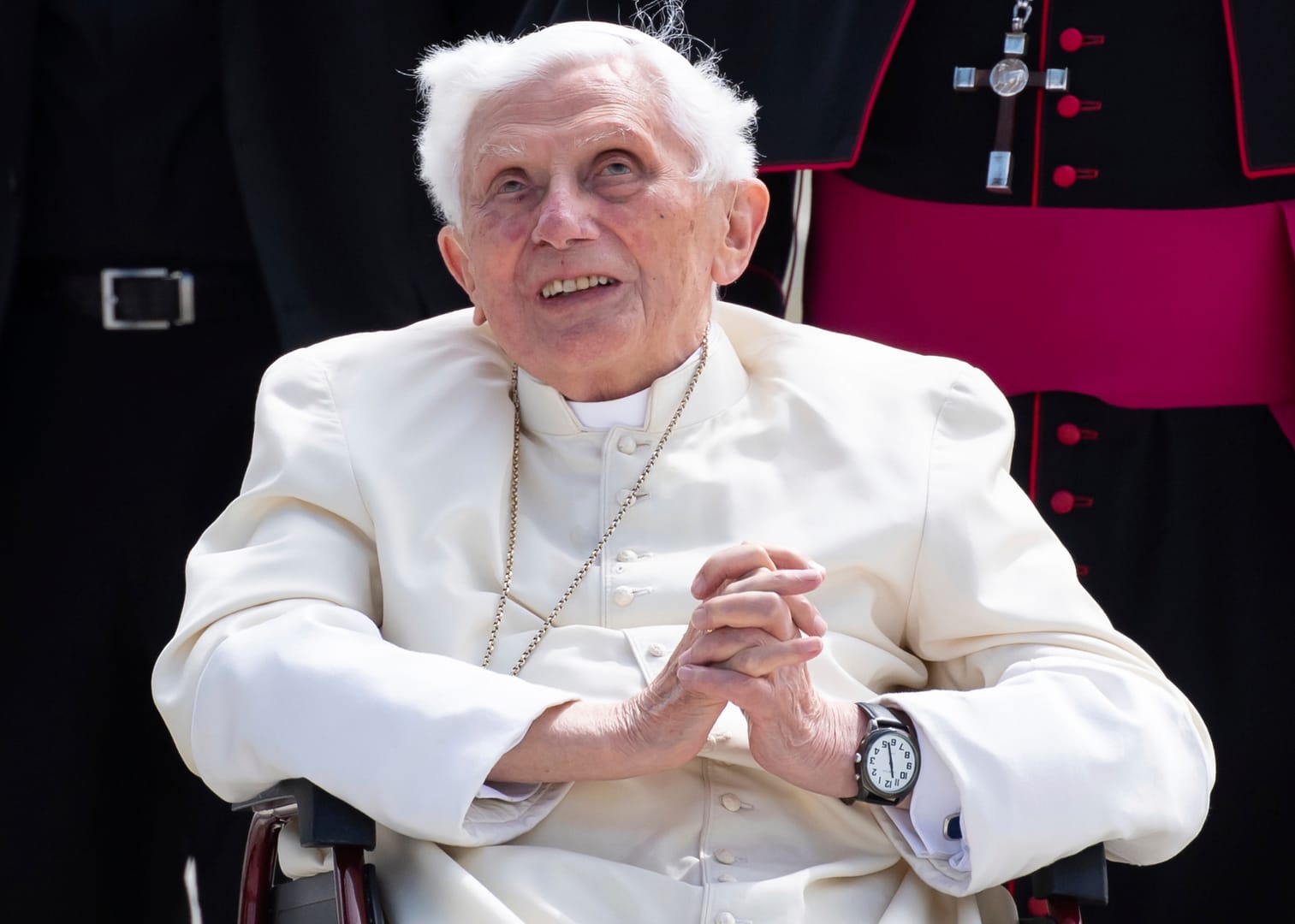
On Jan. 20 the Archdiocese of Munich published a highly anticipated report into its handling of clerical abuse cases, finding that nearly 500 people had been abused from 1945 to 2019. The cases included four abusers who served under the watch of the future Pope Benedict XVI when he led the archdiocese from 1977 to 1982.
Conducted by the Westpfahl Spilker Wastl law firm, the report was commissioned by the archdiocese in February 2020 and identified some 235 perpetrators of abuse, including 173 priests, 9 deacons, 5 pastoral workers, and 48 individuals in Catholic schools, and accused Benedict XVI of negligence.
However, in a subsequent response and letter, Benedict denied any wrongdoing, but asked forgiveness and apologized for his “grievous fault,” saying he trusts in God, who is “not only the just judge, but also the friend and brother who himself has already suffered for my shortcomings, and is thus also my advocate.”
“In light of the hour of judgement, the grace of being a Christian becomes all the more clear to me. It grants me knowledge, and indeed friendship, with the judge of my life, and thus allows me to pass confidently through the dark door of death,” Benedict said.
February
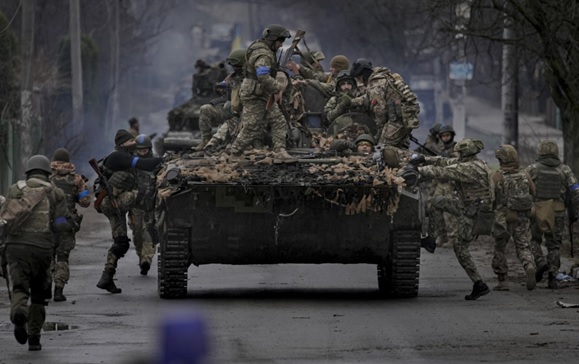
In the defining moment of 2022, Russian forces invaded Ukraine Feb. 24, launching a full-scale war that has caused the largest mass-displacement in Europe since the Second World War, prompting millions to flee their homes and thousands of casualties, many of whom are civilians.
Pope Francis’s approach to the war has dominated much of his public engagement over the 10 months that have now elapsed since the war began. Though he visited the Russian embassy to the Holy See the day after the invasion to express his concern over the war, his stance on hostilities since has been controversial, as he has attempted to walk a neutral line, refusing to take sides or call out Russia or Russian President Vladimir Putin specifically.
However, Francis and his top aides have repeatedly voiced the Holy See’s willingness to negotiate peace talks in the conflict as well as the pope’s desire to visit both Russia and Ukraine, yet so far, both of these options seem out of the question.
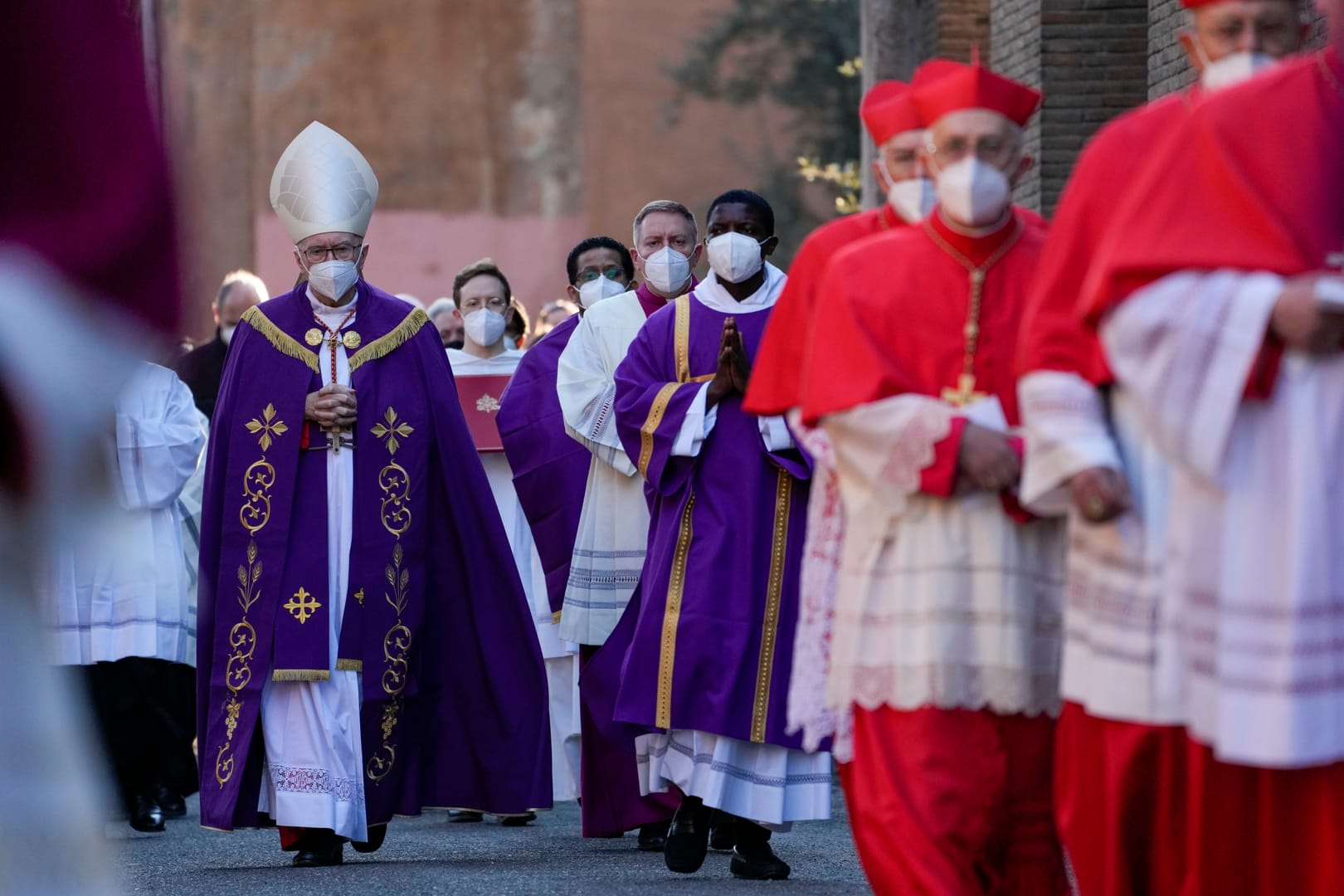
In late February the Vatican announced the first of what would be several cancellations by Pope Francis in 2022 due to “acute knee pain,” a condition that would significantly limit him for much of the rest of the year.
In a statement, the Vatican announced that Pope Francis would not complete a scheduled visit to Florence for a high-profile meeting between mayors and church leaders in the Mediterranean, where he was expected to advance his agenda on migration.
The Vatican also announced that the pope would not be able to preside over the Ash Wednesday procession and Mass inaugurating the church’s Lenten season, which he had declared as a special day of prayer and fasting for Ukraine, due to his knee. The Mass was instead celebrated by the Vatican Secretary of State, Italian Cardinal Pietro Parolin.
March
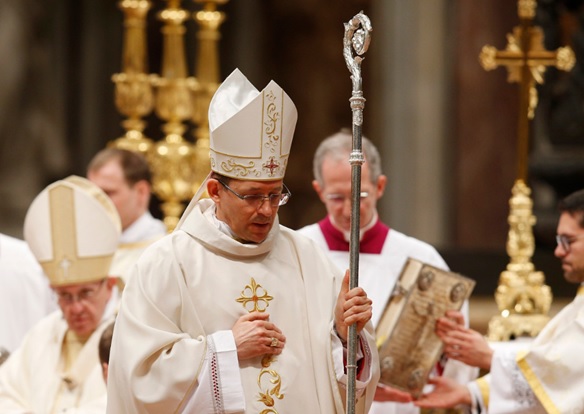
In a sign of mounting tensions that would ultimately dominate much of church life in Nicaragua in 2022, the regime of Nicaraguan President Daniel Ortega in early March declared the papal representative to the country “persona non grata” and expelled him. Polish Archbishop Waldemar Stanislaw Sommertag, who served as apostolic nuncio to the country, returned to Rome after his expulsion.
Tensions between the bishops and the Ortega government have been steadily brewing since the bishops condemned the violent repression of peaceful civil uprisings in 2018, as well as the subsequent detention of what they have called “political prisoners.”
Sommertag is now serving as the Vatican’s nuncio to Senegal, Cape Verde, Guinea-Bissau, and Mauritania.
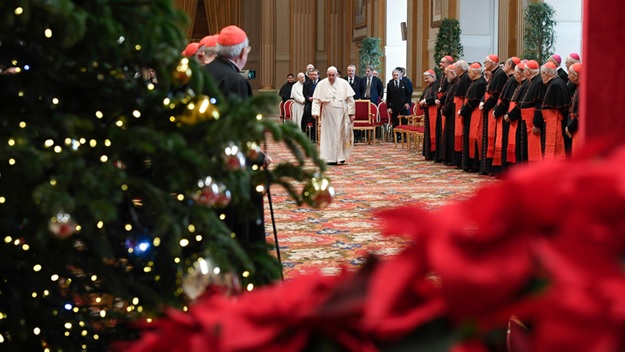
On March 19, the liturgical feast of Saint Joseph, Pope Francis finally rolled out his reform of the Roman Curia with the publication of his apostolic constitution Predicate Evangelium, or “Preach the Gospel,” which outlines the new role, structure, and function of the Vatican’s central governing bureaucracy and is the culmination of nine years of work with his top advisors, spanning the nearly the entirety of his papacy.
Among other things, the reform opened top Vatican leadership roles to any baptized lay person, including women, and outlines a curial design and function that enshrines much of Pope Francis’s broader vision for the church into the statutes of its governing body in terms of decentralization, with a greater focus on evangelization and charity.
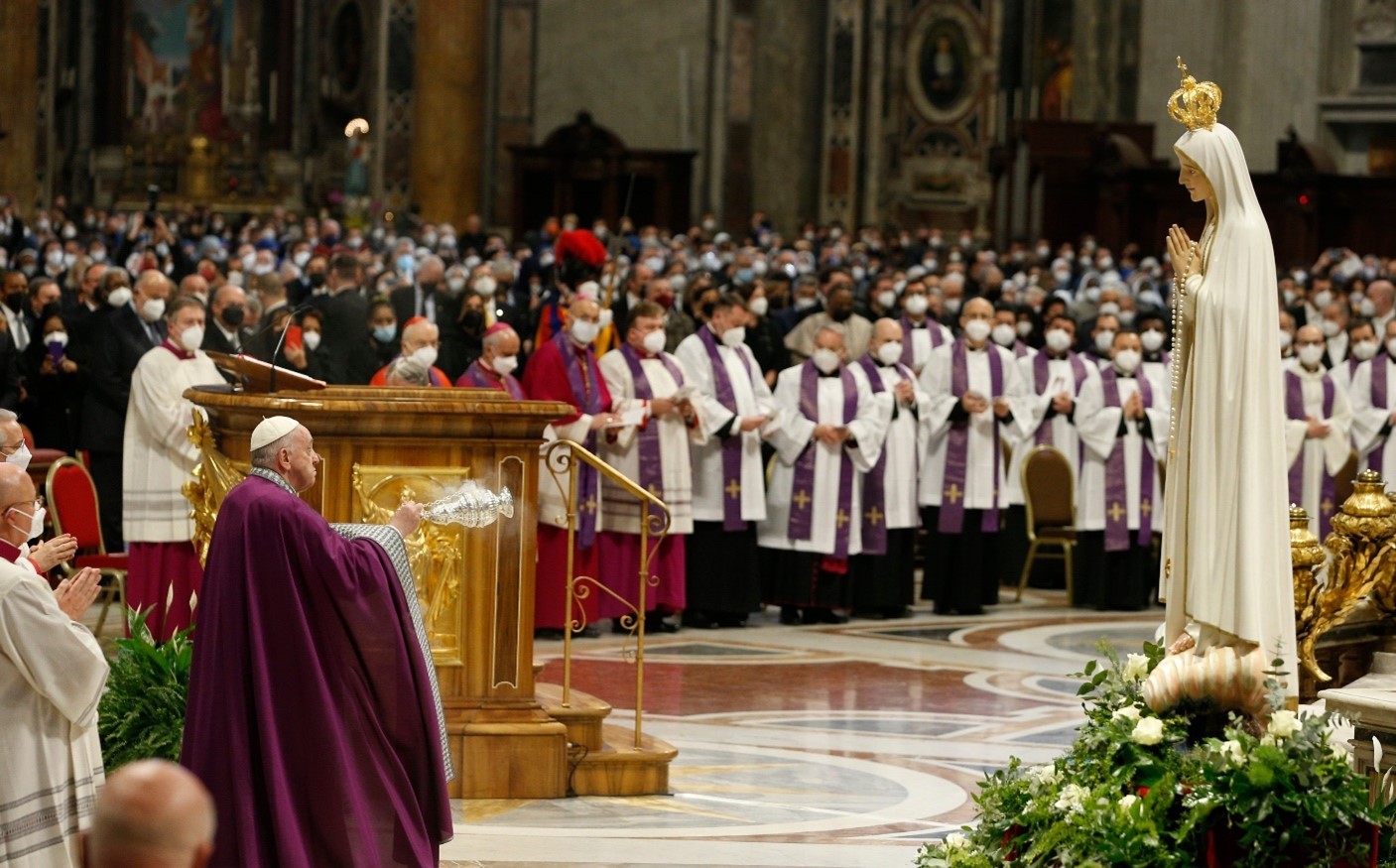
On March 25 Pope Francis took the unusual and hugely significant step of consecrating both Russia and Ukraine to the Immaculate Heart of Mary, praying that God would end the evil of the “vicious war” between the two countries.
The consecration took place during a penitential service held on the Solemnity of the Annunciation, and held significant weight given the connection such a consecration has to the alleged Marian apparitions of Fatima in 1917, during which the Virgin Mary apparently requested that Russia be consecrated to her immaculate heart.
April
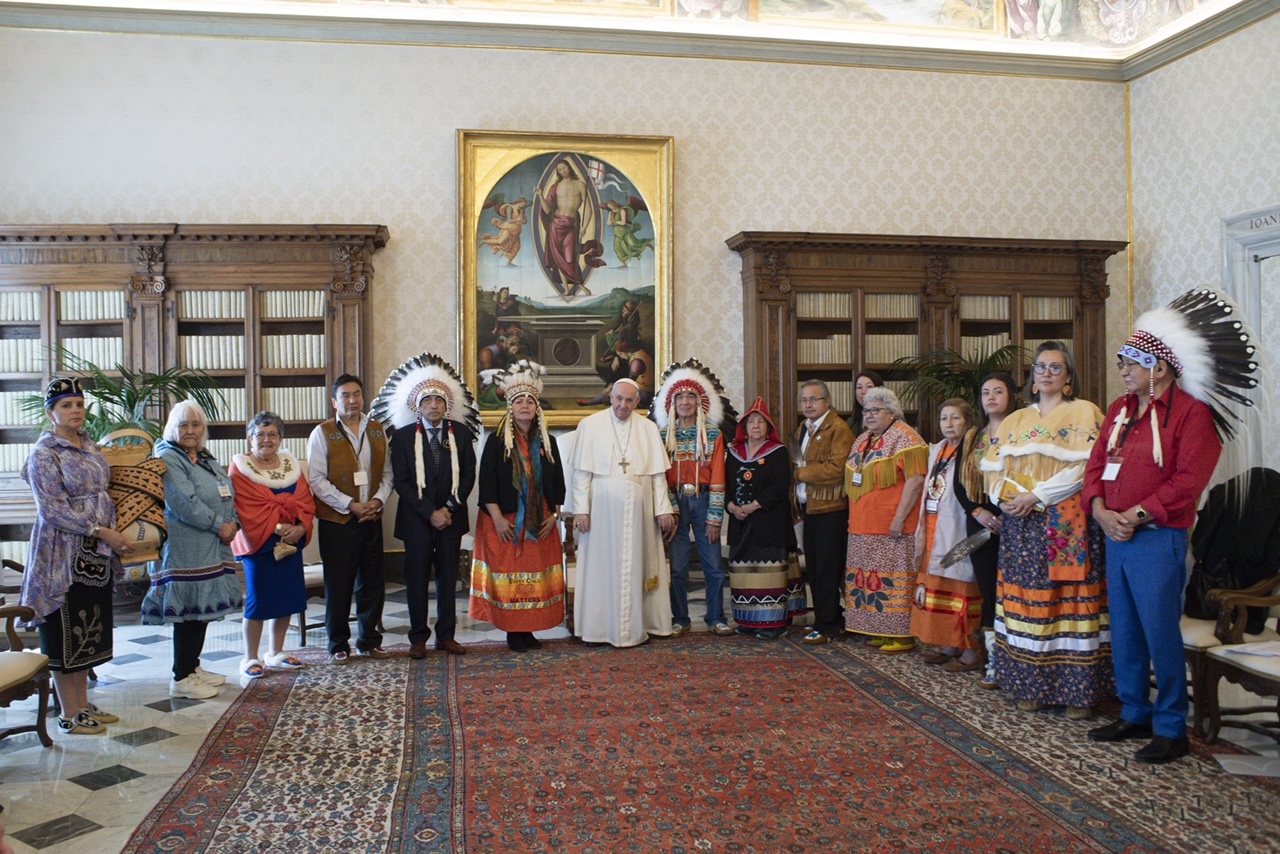
Pope Francis kicked off the month of April with a noteworthy apology, asking forgiveness for the Church’s “deplorable conduct” in the running of residential schools for indigenous children in Canada.
From March 28 – April 1, the pope met privately with delegations from the Métis, Inuit, and First Nations communities in Canada, who made an official visit to Rome to meet with the pontiff as part of a broader process of healing and reconciliation for the Church’s role in Canada’s residential school system, which some have dubbed a “cultural genocide” in which various forms of abuse were rampant.

At the beginning of April, Pope Francis made an official two-day visit to Malta, a trip that had twice been postponed due to the coronavirus pandemic, where he outlined his top social priorities, including the fight against corruption, peacemaking, and migration.
From Malta, which has long been a primary destination for migrants departing from Africa who are seeking entry into Europe, the pope urged European leaders to have a welcoming attitude toward newcomers, and to work for their full integration.
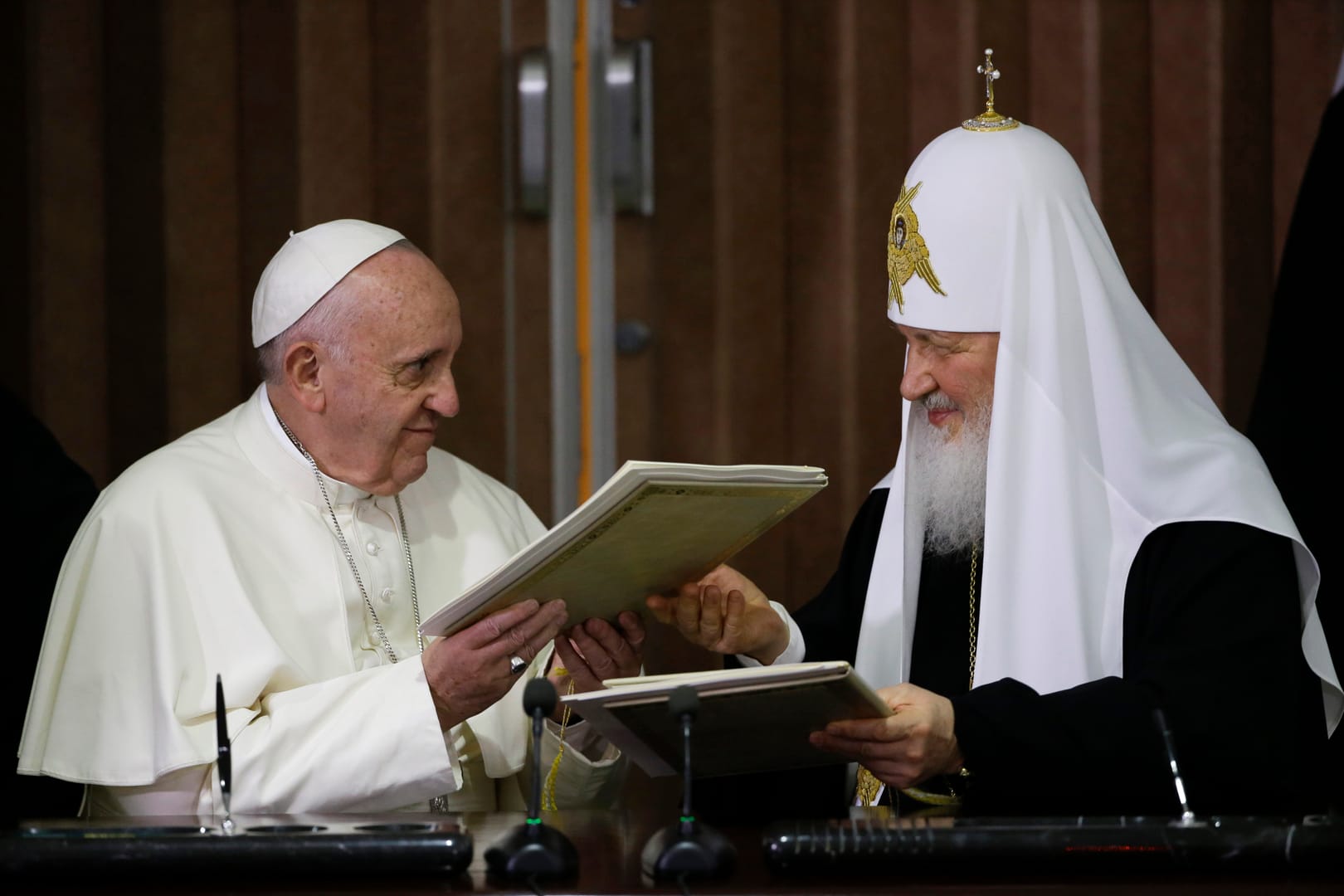
Toward the end of April, Pope Francis announced in an interview that a planned second meeting between he and Russian Orthodox Patriarch Kirill, who held a historic first meeting in Cuba in 2016, had been called off by the Vatican due to the geopolitical fallout the meeting would likely have given Kirill’s vocal support of the war in Ukraine.
The meeting was initially penciled in for June in Jerusalem, however, Kirill’s frequent defense of the war as a defense of Christian morality in the face of western secularism, as well as his insistence that the war is justified due to the threat of Western “Russophobia” and a disregard for Russia’s security concerns, were deemed too toxic for a photo op with the pope.
May
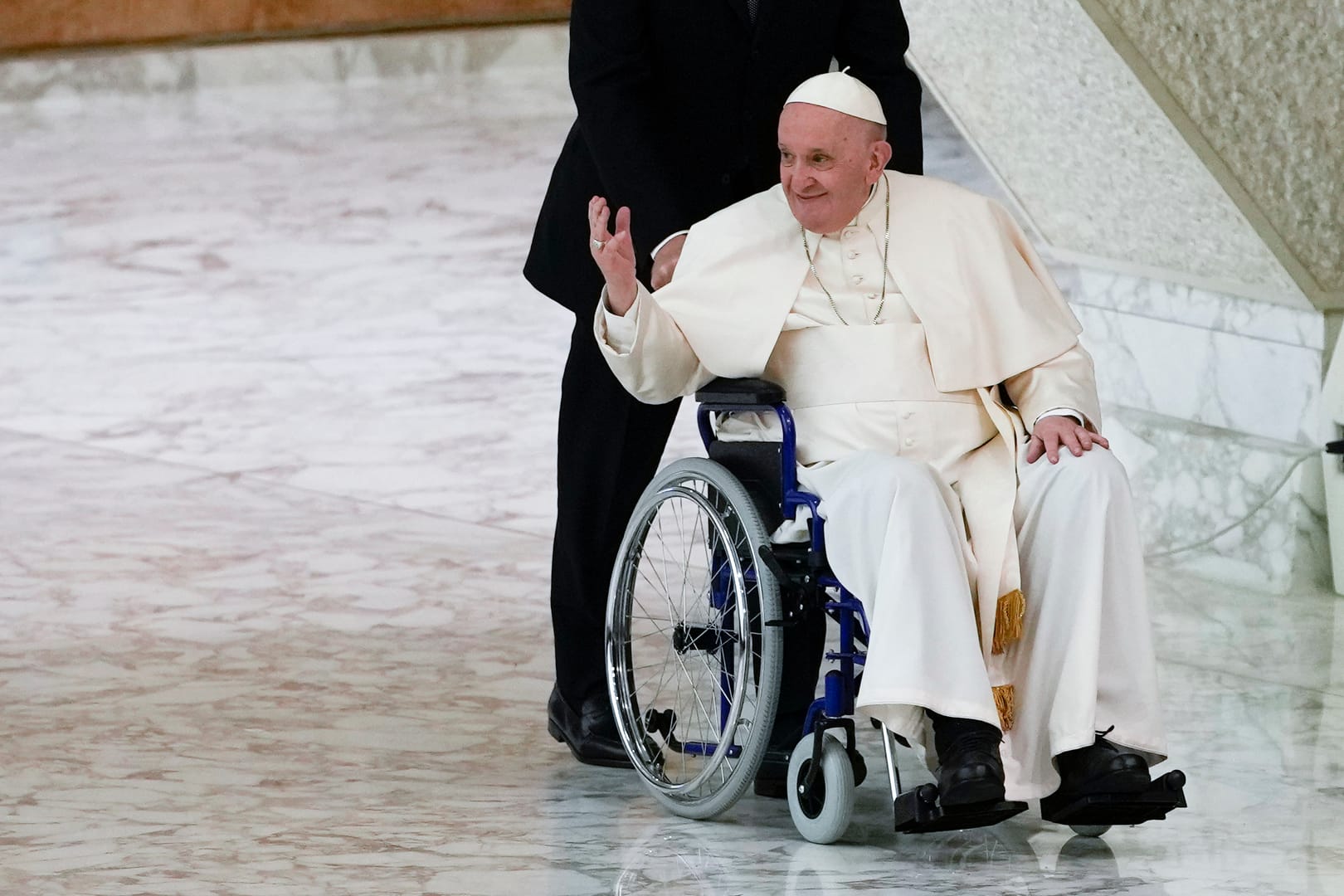
In what sparked months of rumors of a possible resignation and health maladies more serious than what was being publicly conveyed, Pope Francis made his first wheelchair appearance during a May 5 audience with nuns and religious superiors.
It marked the first time that the pope, who had been suffering from osteoarthritis of the knee, had used a wheelchair in public. The use of both a wheelchair and a cane have now become common for Francis, who revealed in an interview in May that he had been receiving injections and therapy but had refused surgery due to a bad reaction to anesthesia during his colon surgery in July 2020.
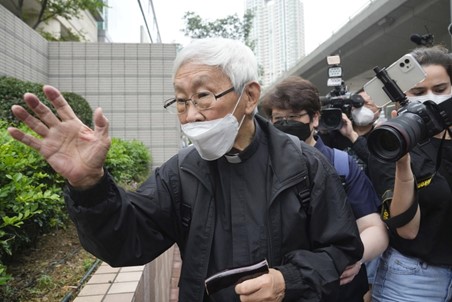
On May 11, Hong Kong’s national security police arrested Chinese Cardinal Joseph Zen, 90, the retired bishop of Hong Kong, and five others under a Beijing-imposed national security law for allegedly colluding with foreign forces.
They were later were released on bail but were accused of failing to apply for local society registration for the now defunct 612 Humanitarian Fund under Hong Kong’s Societies Ordinance law.
Vatican spokesman Matteo Bruni issued a statement following Zen’s arrest saying they were following the situation with “extreme attention,” but made no further comment.

In late May, Italian Cardinal Angelo Sodano, often described as among the leaders of the Vatican’s “old guard,” passed away at the age of 94 after serving as secretary of state to two popes and as the former dean of the College of Cardinals.
Over the years, Sodano, who had long been a towering figure in the Catholic Church’s central governing bureaucracy, had gained a reputation as a savvy statesman and schemer who faced criticism not only on his relations with shady political personalities, but also his handling of the sexual abuse crisis.
Perhaps most prominently, he was criticized for his defense of known abuser, Mexican Father Marcial Maciel Degollado, founder of the Legion of Christ, who was found to be guilty of a range of sexual abuse and misconduct and sentenced to a life of prayer and penance.
June
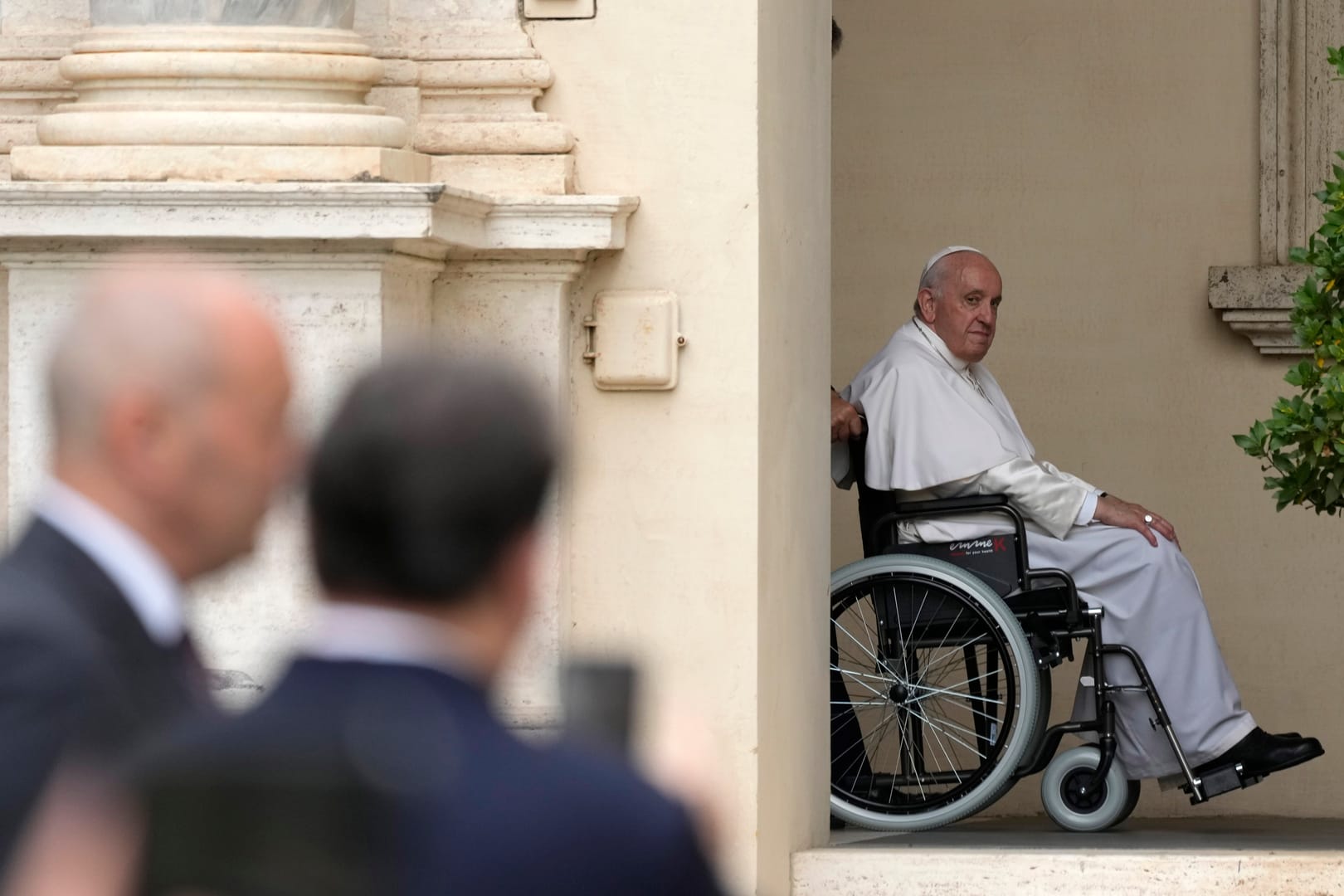
With less than three weeks’ notice, Pope Francis in June postponed his planned July 2-5 visit to the Democratic Republic of the Congo and South Sudan, which he was slated to make alongside the Archbishop of Canterbury, Justin Welby, and the Moderator of the Church of Scotland, Jim Wallace, to promote peace in the war-torn countries.
In a statement at the time, the Vatican said the trip was cancelled on doctor’s orders due to the pope’s ongoing knee troubles. It marked the first time Francis had ever postponed a foreign trip due to health reasons.
Shortly before the Congo and South Sudan trip was cancelled, a trip to Lebanon during the month of June, which had been planned but never announced, was also postponed, with the news being given by a Lebanese minister, as the Vatican had never issued any formal communication about the visit.
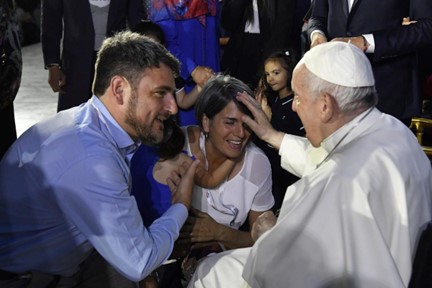
On June 20, Pope Francis kicked off the World Meeting of Families, an international gathering of families from around the world which usually draws thousands together in a different country every few years to hear testimonies and panelists, and to meet with the pope.
It was originally scheduled for 2021 to coincide with the 5th anniversary of the publication of Pope Francis’s 2016 exhortation on the family, Amoris Laetitia, but was bumped to June 22-26, 2022, due to the COVID-19 pandemic.
Yet rather than the major festival the World Meeting of Families is known for, this year’s event was a smaller, more low-key gathering, drawing largely representatives of bishops conferences and ecclesial movements who are involved in the formation of laity and families.

In June United States House Speaker Nancy Pelosi made waves when she took communion at a Mass celebrated in St. Peter’s Basilica that was presided over by the pope.
The move was significant, as Archbishop Salvatore Cordileone of San Francisco, Pelosi’s home diocese, a month prior had barred her from receiving communion in the archdiocese over her outspoken support for abortion.
Pope Francis has repeatedly described the Eucharist as a medicine for the sick and has cautioned that it should not be used as a political weapon. Though he did not administer communion to Pelosi himself, and though it was unclear whether the priest who did knew who she was, the fact that she received the Eucharist during a papal liturgy was enough to make headlines.
July
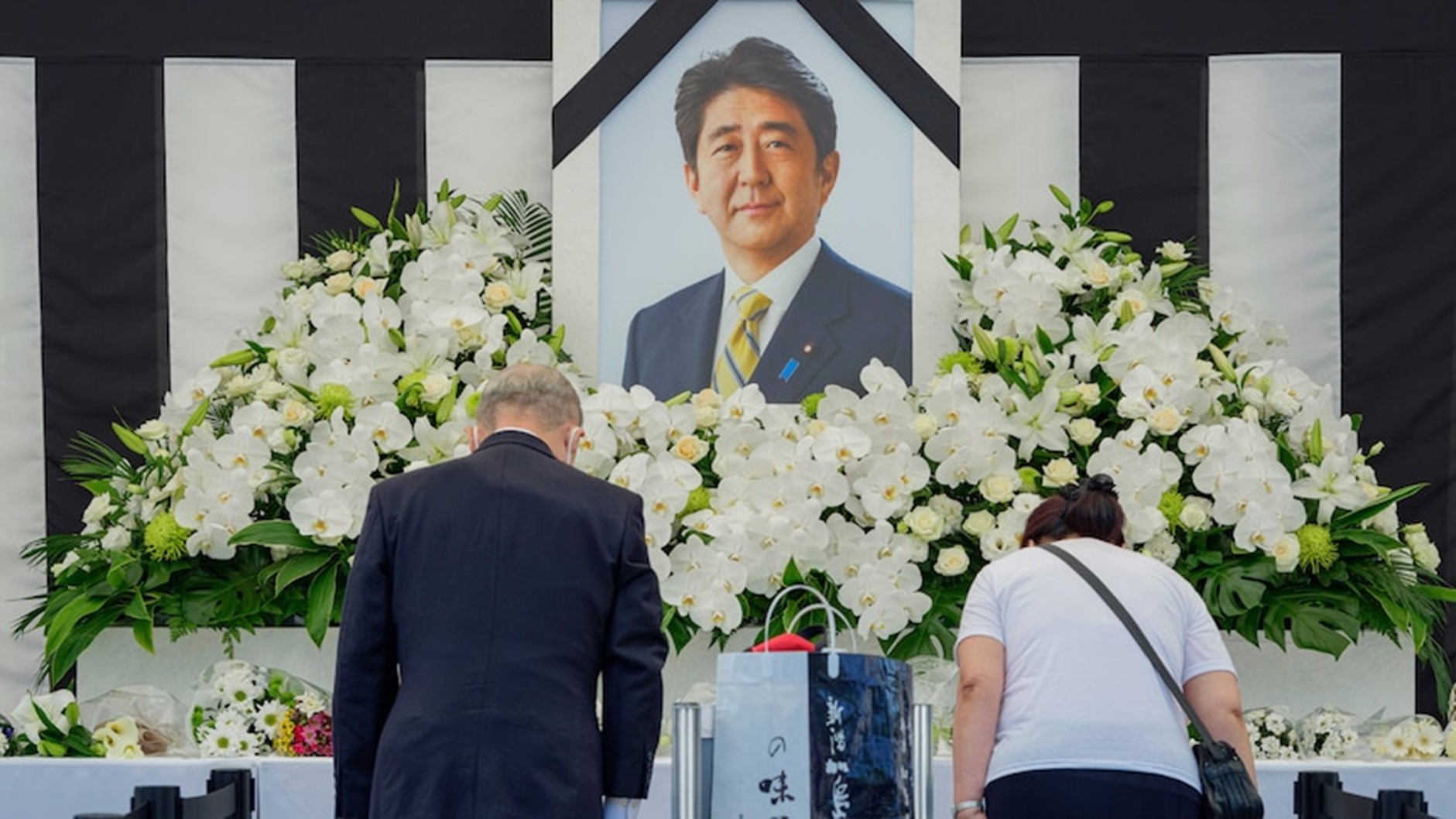
The world was shocked when former Japanese Prime Minister Shinzo Abe was assassinated July 8 while giving a campaign speech on a street in Nara, a city in western Japan. His speech was part of a political campaign for his former party, the Liberal Democratic Party, ahead of upper house elections set for later that month.
Abe, who served as Prime Minister of Japan and President of the Liberal Democratic Party from 2006 to 2007 and again from 2012 to 2020, was the longest serving prime minister in Japan’s history. He was given a state funeral, the first for an ex-premier since a ceremony for former PM Shigeru Yoshida in 1967.
Japan’s bishops voiced “sad shock” after Abe’s death, saying, “Attempting to achieve one’s own will by committing violence against life is a challenge to God, the creator of life.”
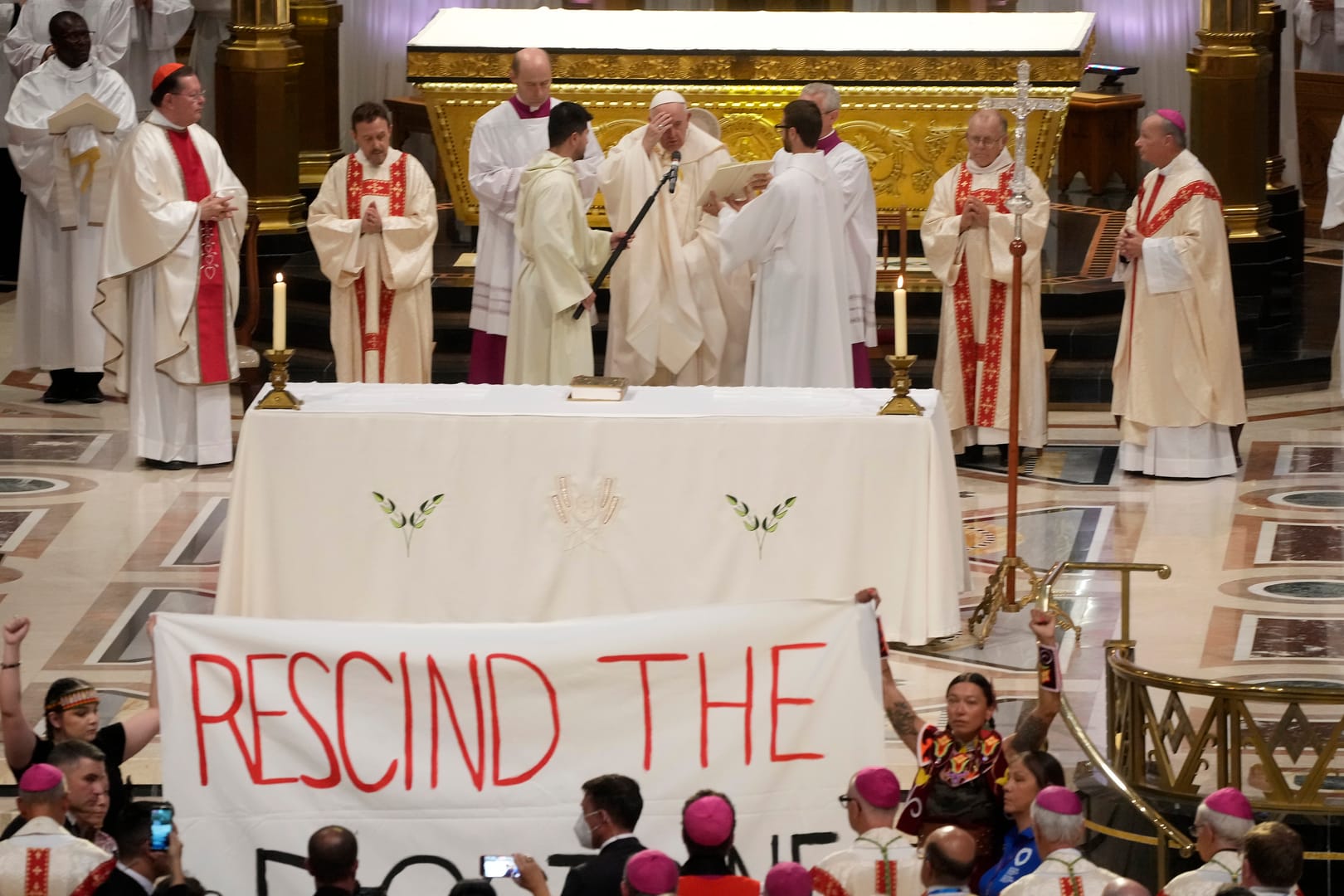
Despite the knee troubles that prompted him to postpone his visit to Congo and South Sudan just a couple of weeks prior, Pope Francis continued the process of healing and reconciliation with Canada’s indigenous communities by making a July 24-29 visit.
While there, the pope visited the grounds of former residential schools and issued a highly anticipated apology for the church’s role in the “cultural destruction” of the residential school system. The apology not only fulfilled an action point from Canada’s Truth and Reconciliation Commission, which requested that the pope apologize on Canadian soil, but it was also hailed as a major step in the healing process with indigenous communities.
August
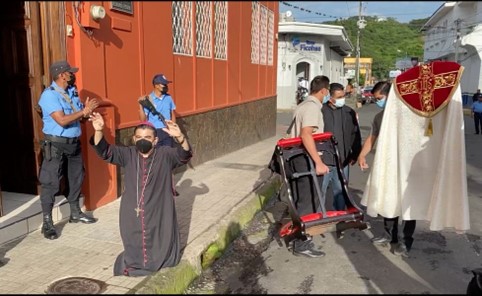
In August church-state tensions in Nicaragua boiled over with the arrest of Bishop Rolando Alvarez of the Diocese of Matagalpa, with authorities saying a criminal investigation had been launched against the prelate for “crimes against spirituality.”
An official police communique accused Alvarez, who had been outspoken against Nicaraguan President Daniel Ortega’s government, of using his status as a religious leader “to organize violent groups, inciting them to carry out acts of hatred against the population, provoking an atmosphere of anxiety and disorder, disrupting the peace and harmony of the community.”
The arrest of Alvarez, who remains under house arrest, was dubbed the latest attempt by the Ortega regime to silence voices of dissent. His initial hearing is set for Jan. 10, 2023.
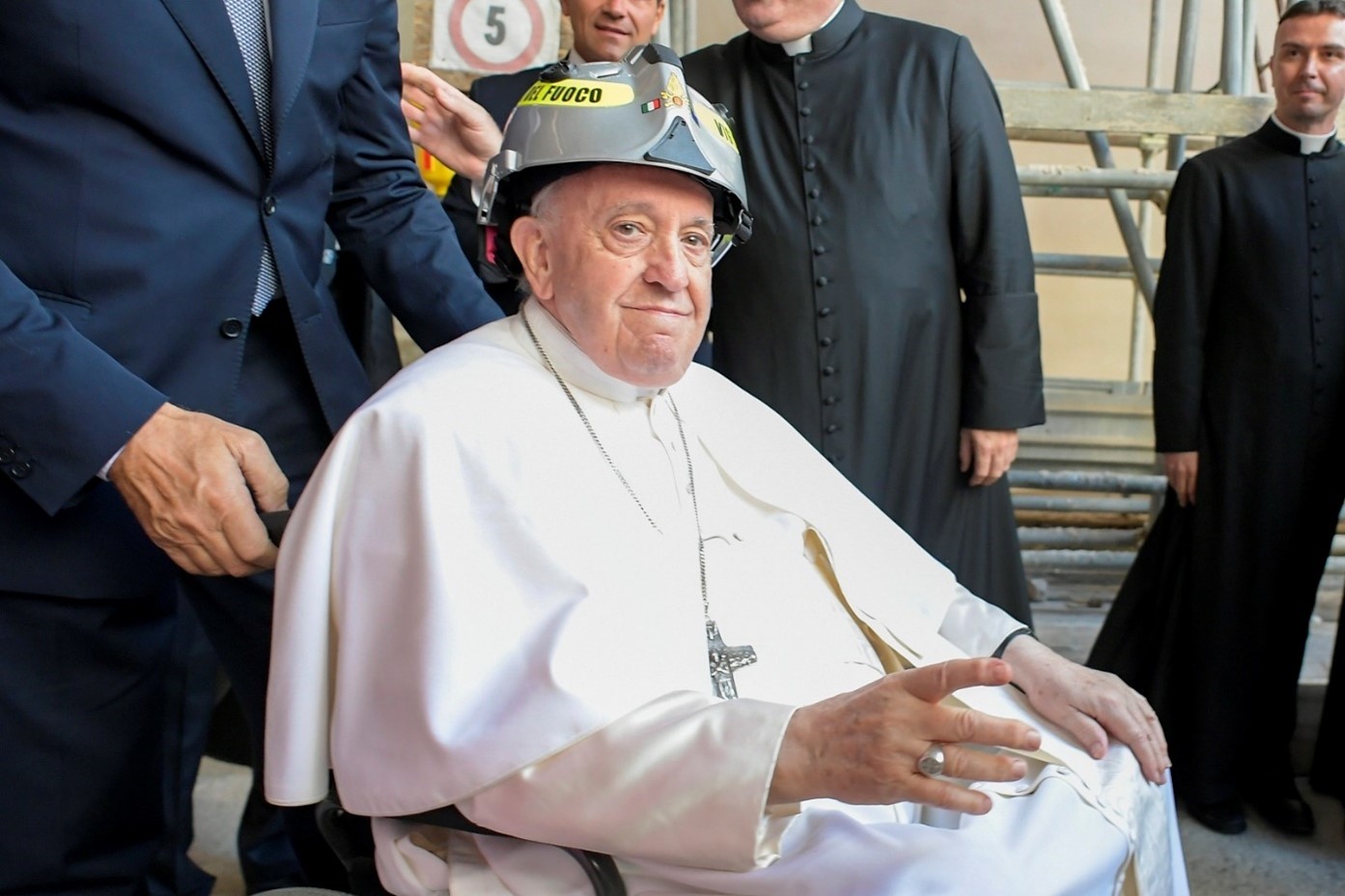
In August Pope Francis visited the Italian city of L’Aquila, capital of the central Italian region of Abruzzo and the final resting place of Pope Celestine V in the 13th century – the last pope before Benedict XVI to resign the papacy.
In 2009 Aquila was hit by a severe earthquake that practically leveled it to the ground, leaving around 300 people dead and roughly 1,500 others injured.
Retired Pope Benedict XVI had visited the city himself after the 2009 earthquake, leaving behind his pallium, or stole, which he’d received at his election as pope, an act that observers later believed was a foreshadowing of his own resignation in 2013.
Given his ongoing knee troubles and the cancellation of summer trips, rumors were rampant that Pope Francis would announce his own resignation from the papacy while in Aquila, however, he defied those rumors, instead offering a message of hope to inhabitants still seeking to rebuild their town, and their lives.
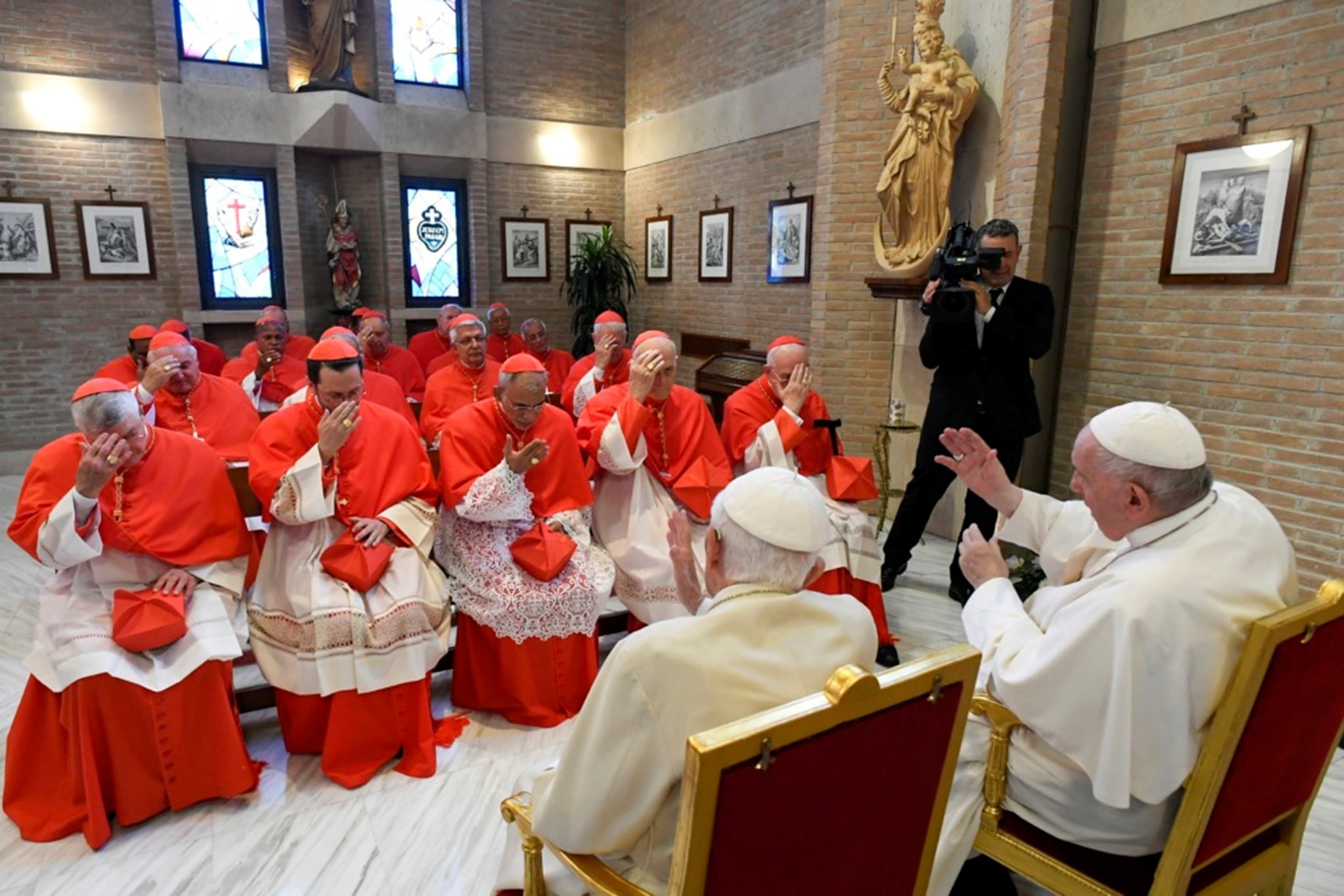
At the end of August Pope Francis held a consistory for the creation of 20 new cardinals which was followed by a special two-day meeting of the world’s cardinals to study his reform of the Roman Curia.
Pope Francis told the prelates, whose diversity gives the College of Cardinals a more global presence, that they should be in constant wonder of God and should share in Jesus’s commission to a “ragtag group of disciples” to spread the Gospel throughout the world.
The cardinals during their two-day meeting discussed several key points of the pope’s curial reform, with debate flaring up over several issues, most prominently the ability for laypeople to lead curial departments, rather than strictly cardinals or bishops.
September
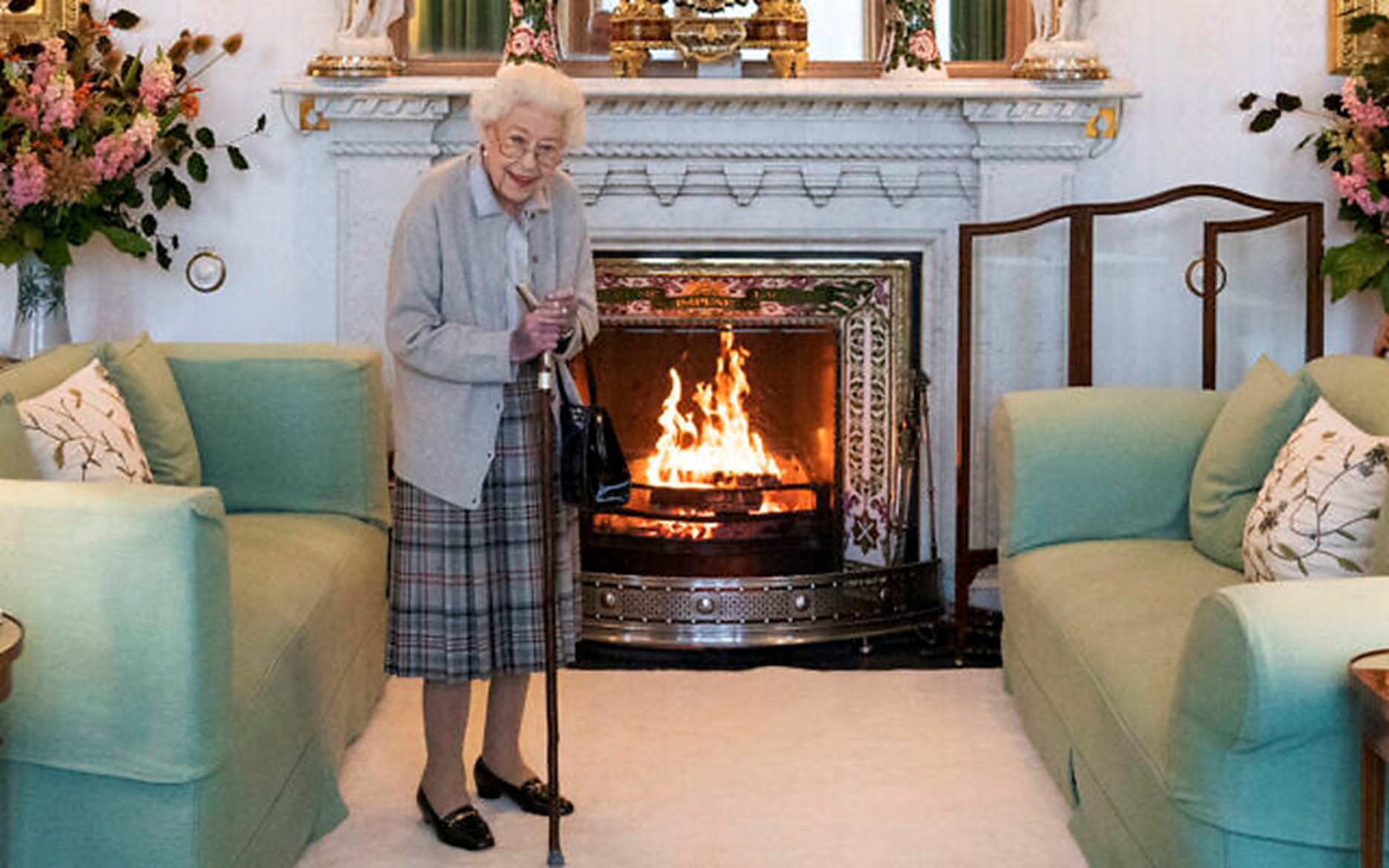
In September the world was shaken by the death of the late Queen Elizabeth II, England’s longest-reigning monarch, who passed away Sept. 8 at the age of 96. She ruled for 70 years, ascending to the throne in 1952 at the age of 25, and remaining until her death.
Among those eager to express their sympathy amid the outpouring of support was Pope Francis, who praised the queen’s “unstinting service to the good of the nation and the commonwealth, her example of devotion to duty, her steadfast witness of faith in Jesus Christ and her firm hope in his promises.”
Her eldest son, Charles, has now ascended to the throne and is serving as England’s new king.
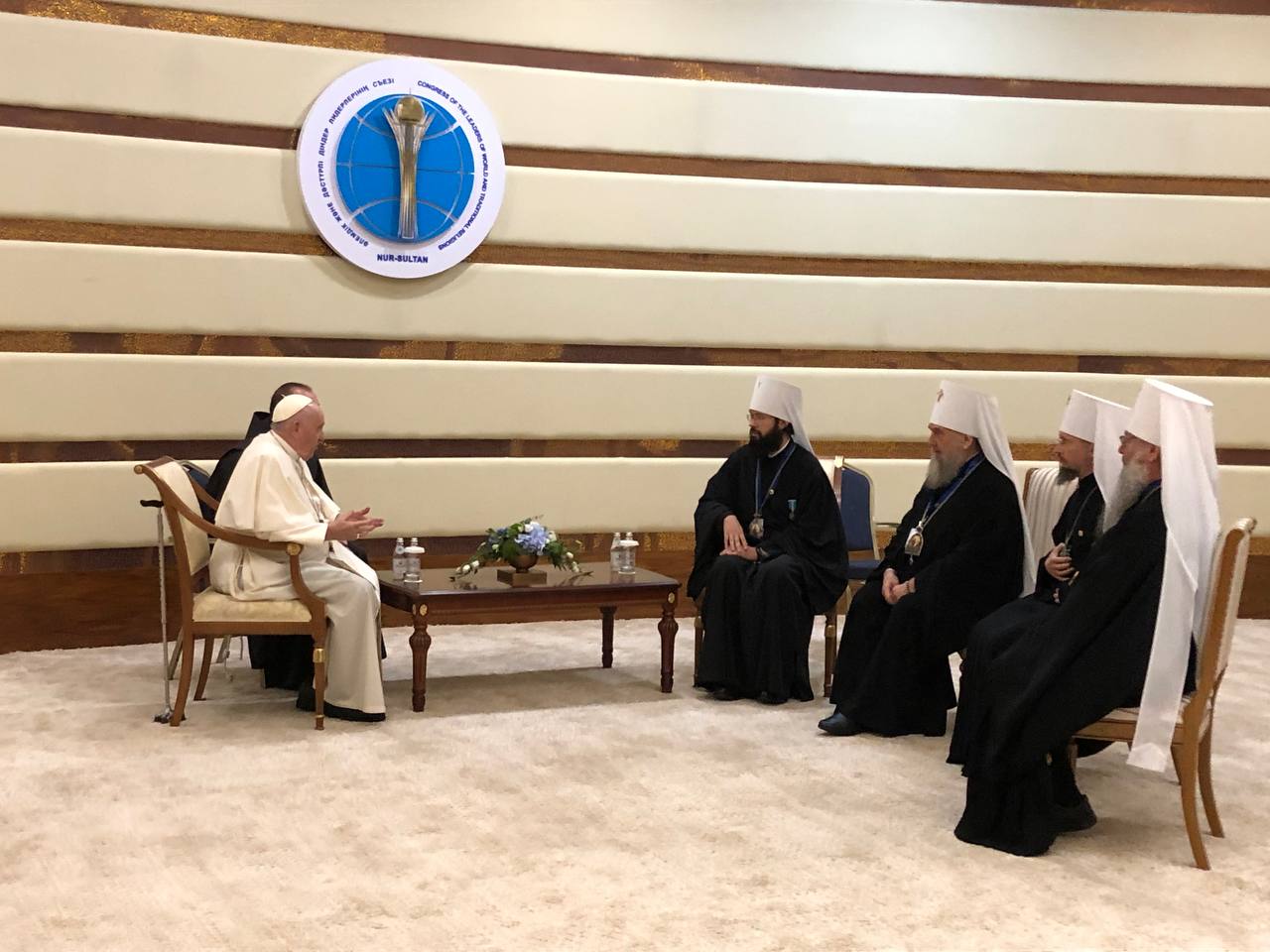
In a politically charged visit, Pope Francis traveled to the nation of Kazakhstan Sept. 13-15 for a high-profile interfaith summit as part of his long-term strategy at building bridges with the Muslim community.
Russian Orthodox Patriarch Kirill was also expected to attend the summit, but pulled out shortly before, meaning that instead of meeting him, the pope had a sidebar meeting with Metropolitan Anthony Sevryuk of Volokolamsk, the Moscow patriarchate’s second highest-ranking official.
Pope Francis in his speeches in Kazakhstan, which shares a lengthy border with Russia, decried the “senseless” and “tragic” war in Ukraine, and, in remarks seen to be a direct rebuke of Kirill’s defense of the war on religious grounds, urged religious leaders to reject war.
“May we never justify violence. May we never allow the sacred to be exploited by the profane. The sacred must never be a prop for power, nor power a prop for the sacred!” he said.
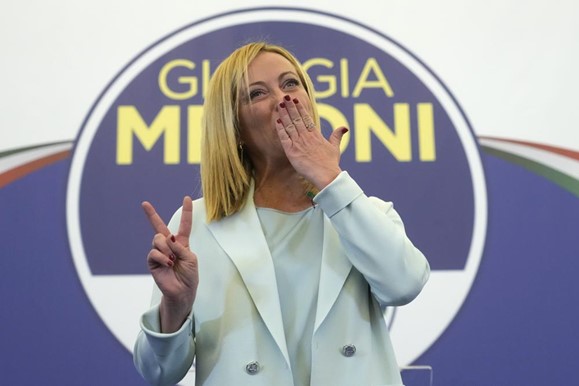
Italian voters hit the polls on September 25 in national elections that gave a clear victory to the rightwing, euro-skeptic Fratelli d’Italia party, which has neo-fascist roots, and which is led by Italian politician Giorgia Meloni, who subsequently became Italy’s first female prime minister.
Meloni’s election meant Italy ushered in its first far-right government since the time of the Second World War, making it the latest country to be swept up in a current European trend toward nationalist right-wing populism.
While the two might find common ground on their approach to issues such as engagement with Russia, Meloni’s victory presented a challenge for Pope Francis, who has often cautioned against the dangers of nationalist populism, when it comes to top agenda items such as migration, as one of her top coalition partners is conservative former deputy prime minister Matteo Salvini, known for his hardline anti-immigration stance and who has been criticized for carrying rosaries and bibles at political rallies.
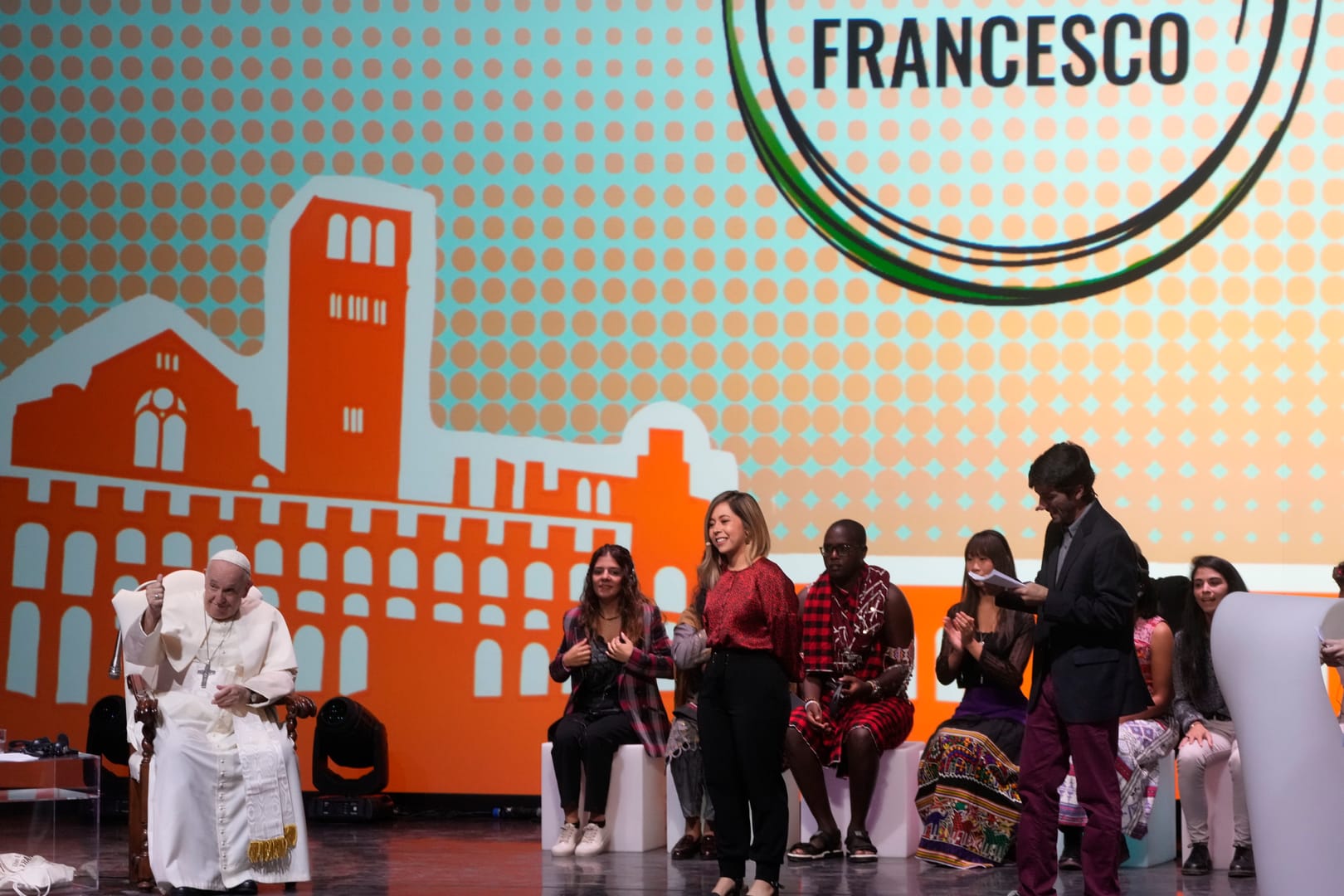
Pope Francis closed the month of September by making back-to-back daytrips to Assisi and Matera, traveling to Assisi Sept. 24 to meet with young economists and changemakers, and Matera on Sept. 25 to celebrate the closing Mass of the Italian National Eucharistic Congress.
While in Assisi, the pope signed a pact with the roughly 1,000 young people present to implement a joint vision for a peaceful and just economy that’s more equitable and respectful of the poor and the environment.
In Matera, he offered a reflection on loving the poor, which was an especially apt message given that the vast majority of poverty within Italy comes from the south, which is more remote and less developed than the country’s central and northern regions.
October
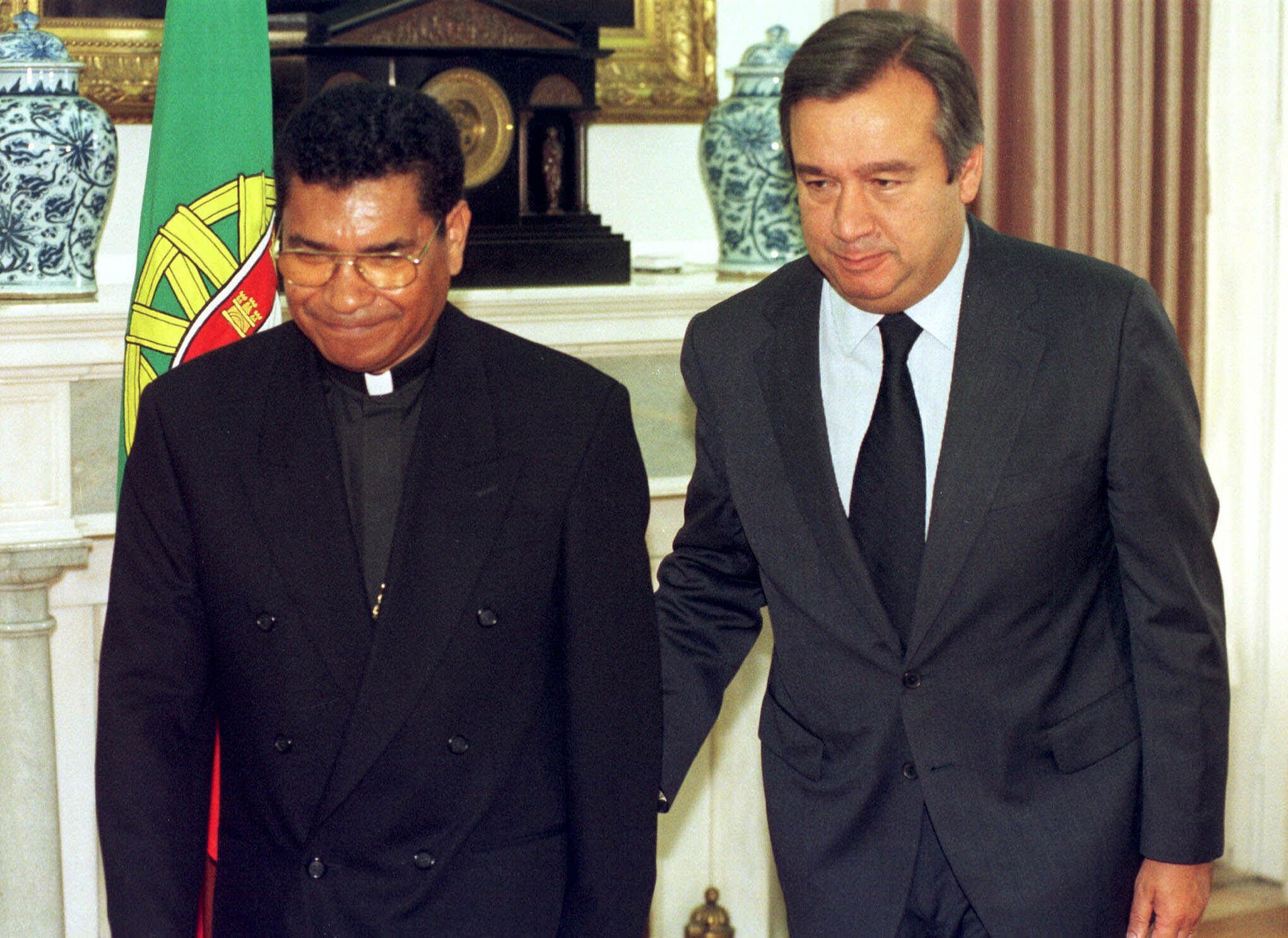
October was a big month at the Vatican in terms of seemingly small, but significant developments, one of which was the revelation of allegations of the sexual abuse of minors against Bishop Carlos Ximenes Belo, a Nobel laureate and quasi national hero in East Timor for his role in promoting the country’s independence.
The former bishop of Dili in Timor-Leste, Belo won the Nobel Peace Prize in 1996 alongside another East Timor independence icon, Jose Ramos-Horta, for his efforts promoting a fair and peaceful solution to conflict inside the country as it struggled to gain independence from Indonesia. He repeatedly condemned human rights abuses committed by East Timor’s Indonesian leaders, despite threats to his life.
He had retired unusually early at the age of 54 in 2002, with vague references to health and stress, so the allegations against him, as well as a subsequent announcement that the Vatican had imposed restrictions on his ministry in 2019, came as a shock, with many Timorese criticizing the Vatican for punishing their national hero.
The Vatican’s envoy to East Timor, Monsignor Marco Sprizzi, gave an interview in the midst of the backlash urging faithful to respect the restrictions imposed by the Holy See.

Pope Francis in October clipped the wings of the personal prelature of Opus Dei, one of the church’s most sprawling and influential groups, by imposing a new set of rules declaring that from now on, the head of Opus Dei will be a priest rather than a bishop, and also that Vatican supervision of the group will fall under the Dicastery for Clergy rather than the Dicastery for Bishops.
Many analysts at the time interpreted the move as a “downgrade” in ecclesial standing and an attempt to cut them down to size, however, Pope Francis in his decree insisted the changes were intended to protect Opus Dei’s founding vision.
Leaders of the group, including current Prelate Monsignor Fernando Ocáriz, have organized a special meeting in early 2023 to revise their statutes in order to comply with the papal mandate.
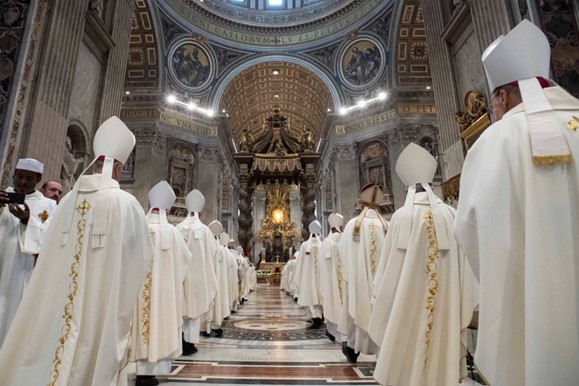
On Oct. 11, Pope Francis presided over a Mass marking the 60th anniversary of the opening of the Second Vatican Council in 1962, calling the event an act of love toward God and a remedy to the polarization afflicting much of the modern church.
He chastised those who choose party over unity, saying, “Let us not give in to his enticements or to the temptation of polarization. How often times, in the wake of the Council, did Christians prefer to choose sides in the Church.”
“How many times did they prefer to cheer on their own party rather than being servants of all? To be progressive or conservative rather than being brothers and sisters? To be on the ‘right’ or ‘left,’ rather than with Jesus?” he asked, and cautioned against both overly progressive or overly traditional interpretations of the faith and of Council reforms.
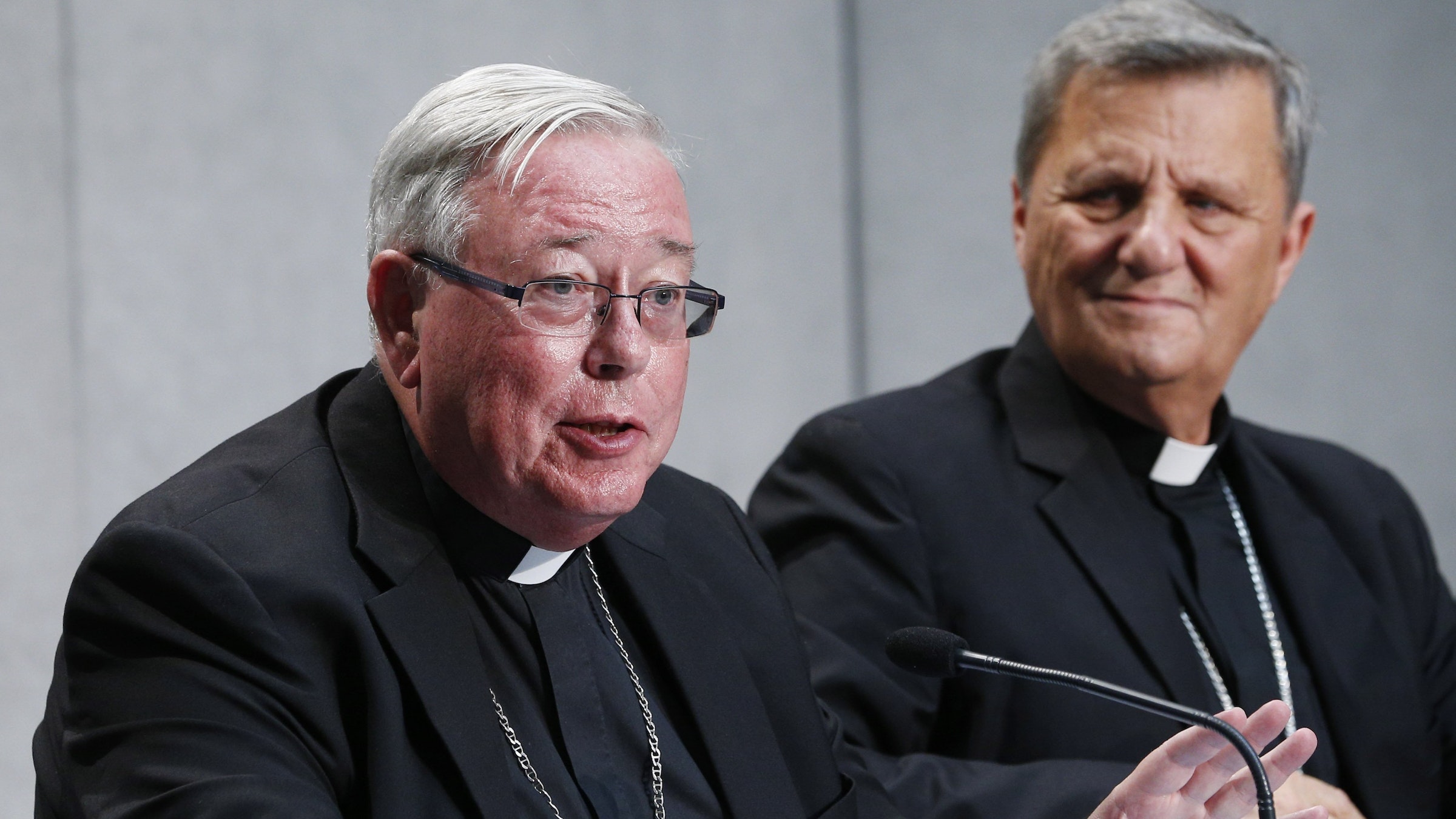
Pope Francis in mid-October announced that his ongoing Synod of Bishops on Synodality would be extended for an additional year, which he said was to allow more time for discernment and a greater understanding of synodality as a key aspect of church life.
This means that the process, unfolding at a diocesan and now continental stage, will include two Rome-based gatherings in 2023 and 2024, and will span about as long as the Second Vatican Council itself, giving many observers the impression that the pope is seeking to cement his own legacy within the global church.
November
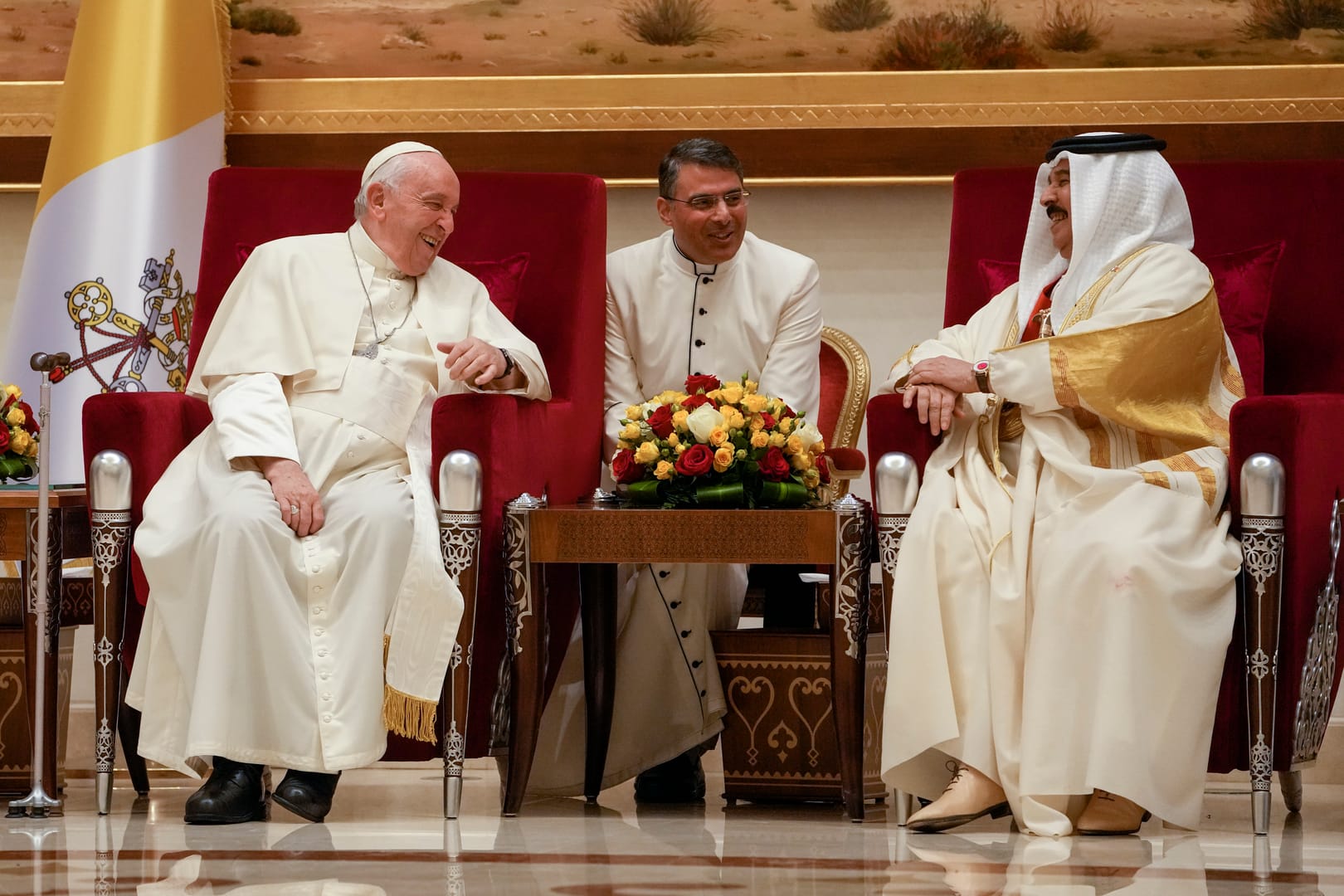
From Nov. 3-5 Pope Francis visited the Gulf nation of Bahrain, where he sought to continue building bridges with the Muslim community while also advocating for human rights in a nation whose monarch has been accused of various human rights abuses.
While in Bahrain, Pope Francis attended a government-sponsored conference on dialogue between East and West; he advocated for an end to the death penalty, which many activists argue is being used to silence political prisoners; and he also visited both Our Lady of Arabia Cathedral in Awali, the Arabian Gulf’s largest church, as well as the region’s oldest church, which opened in the capital city of Manama in 1939.
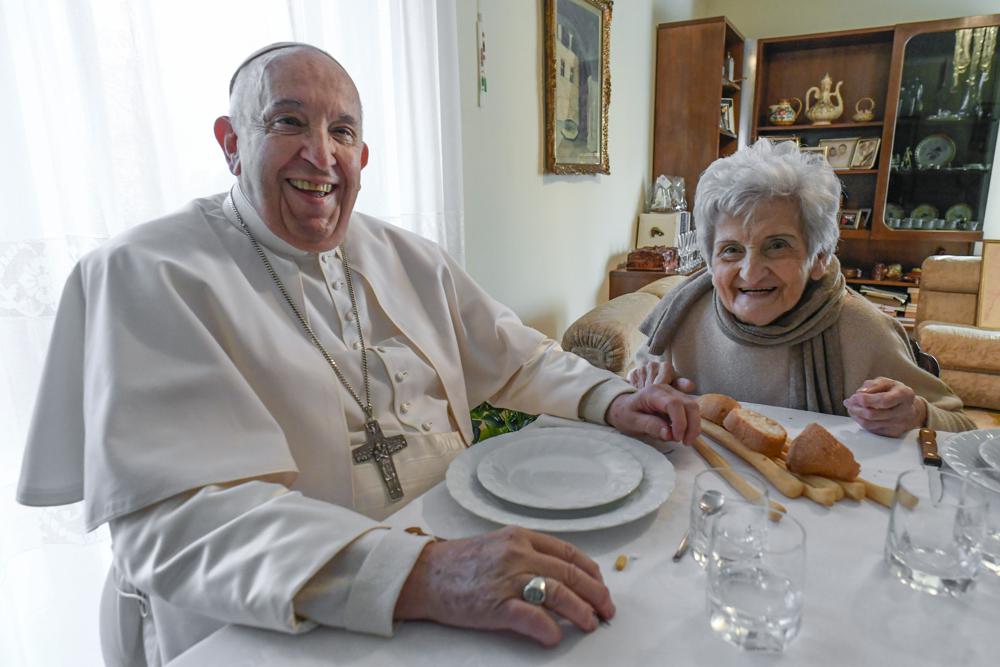
Pope Francis made a weekend visit to his relatives in the northern Italian town of Asti Nov. 19-20, to celebrate the 90th birthday of his cousin Carla Rabezzana, whose mother, Ines, was a first cousin of the pope’s father, Mario Bergoglio.
He also stopped by a city nursing home and then made a visit to the nearby town of Tigliole to visit another cousin and celebrated a public Mass, during which he stressed the importance of staying in touch with one’s roots, saying he came back to his ancestral home to “rediscover and savor” his own.
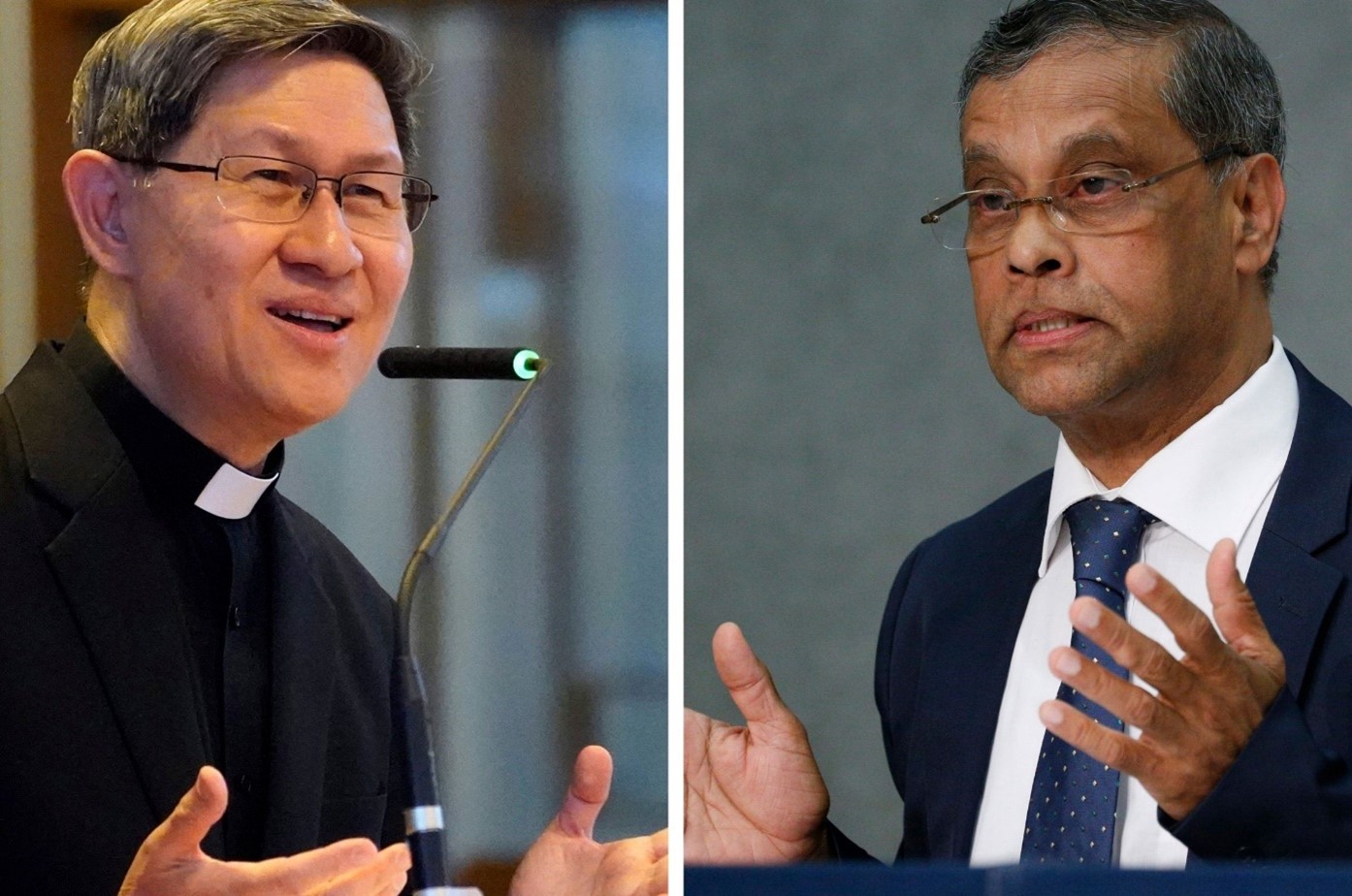
In what was a surprise move for many, Pope Francis in November ousted the entire leadership of the Catholic Church’s largest charitable organization, Caritas Internationalis, and appointed an interim leader to overhaul both its statutes and management.
A Vatican statement at the time said there was no “financial mismanagement or sexual impropriety,” but that the decision was made over “real deficiencies (in) management and procedures, seriously prejudicing team-spirit and staff morale.”
The move was seen as a lack of confidence in the leadership of layman Aloysius John, the former secretary-general of Caritas Internationalis, and a slap in the face to Filipino Cardinal Luis Antonio Tagle, who is pro-prefect of the Vatican’s Dicastery for Evangelization and who had served as president of Caritas.
Though Tagle has been ordered to assist the organization’s interim leader in the overhaul process and the election of new leadership during their spring 2023 assembly, many believe the pope’s move was a loss of faith in Tagle’s own leadership abilities.
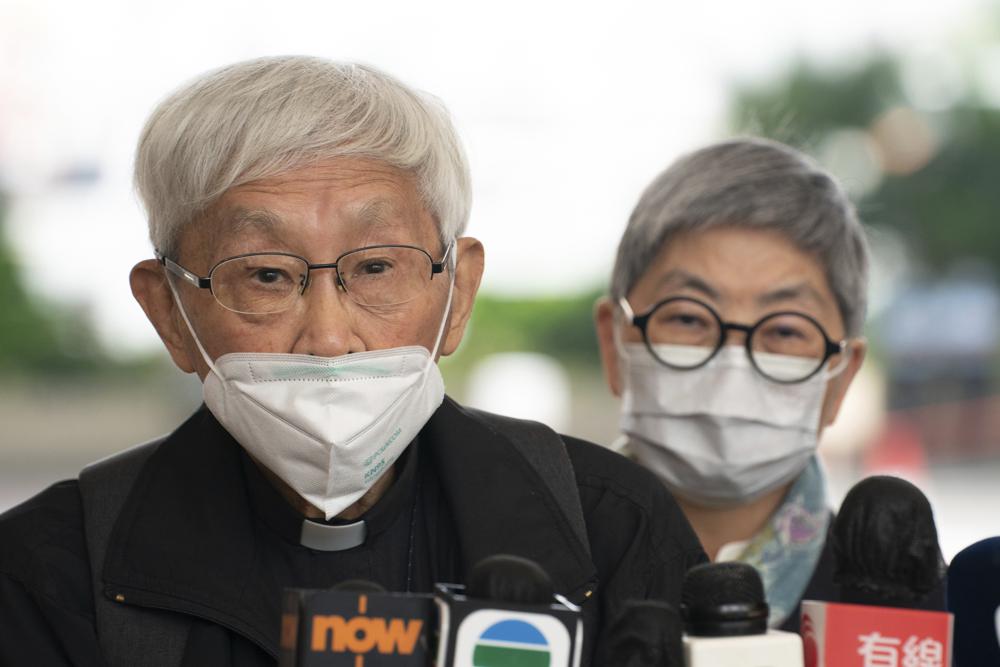
On Nov. 25, Cardinal Joseph Zen, the 90-year-old former bishop of Hong Kong, and five others were convicted in the ongoing trial against them for failing to register a now-defunct relief fund that offered assistance to Hong Kong’s pro-democracy movement.
Each of the defendants received fines, with Zen ordered to pay HK$ 4,000 (US$ 500). None were given jail time, however, the sentence was widely considered a threat and an example to other pro-democracy activists who push back against the increasingly strict policies Beijing is implementing in the territory.
December

The month of December began with another shock for the Catholic Church when reports emerged that Slovenian Jesuit Father Marko Ivan Rupnik, a world-famous artist whose murals adorn the walls of churches and chapels throughout the Vatican and beyond, has been accused of sexual misconduct with nuns and has been barred by his order from public ministry.
A Vatican statement said the Vatican’s Dicastery for the Doctrine of the Faith (DDF) conducted an investigation into the allegations last year, but that the case was closed due to a statute of limitations on the incidents being investigated. However, a statement from the Jesuit order said they have placed their own restrictions on his ministry that remain in place, despite the DDF’s decision.
His case has generated enormous backlash for the lack of transparency, including the revelation by Jesuit Father General Arturo Sosa that Rupnik had briefly been excommunicated for absolving a woman in confession for having had sexual relations with him – an act considered to be among the most serious crimes of the church incurring automatic excommunication that can only be lifted if the priest admits to it and repents.
Rupnik, 68, the latest in a series of high-profile Catholic individuals in recent years to face such allegations, but his case has garnered unique attention given the fact that he belongs to the same order as Pope Francis.
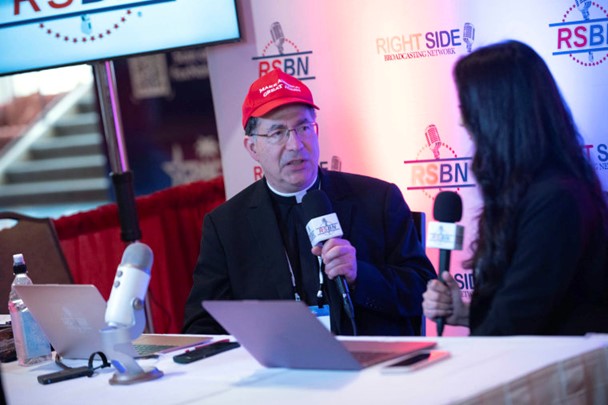
Pope Francis earlier this month made the significant move of defrocking one of the United States’ most prominent and controversial priests, Frank Pavone, known for his prolife advocacy and founding of the organization, Priests for Life.
He has also drawn sharp criticism over his political involvement in the election campaign for former President Donald Trump, and for some of his advocacy tactics.
A letter from the Vatican’s Dicastery for Clergy that was sent to all US bishops said the decision was made “with no possibility of appeal” over what were described as “blasphemous communications on social media, and of persistent disobedience of the lawful instructions of his diocesan bishop,” as Pavone had been engaged in a years-long deadlock with his bishop, Patrick Zurek of Amarillo.
Pavone after the decision went public said he was targeted and insisted that he was not going to let it stop him from his prolife ministry. He still refers to himself as “Father” Pavone on his social media accounts.

In the final days of December, Pope Francis caused global panic when he announced at the end of a general audience that his predecessor, retired Pope Benedict XVI, was “very sick” and asked the world to pray.
A Vatican statement said Benedict, 95, had experienced a “worsening” of his health due to advanced age, but that as of Thursday, Dec. 29, he was “stable” and alert, though still in serious condition.
Benedict XVI sent shockwaves around the world when he became the first pope in 600 years to resign from the papacy in 2013. He has resided inside a monastery within the Vatican Gardens ever since, largely sticking to his pledge to stay “hidden from the world.”
It is unclear as of this writing exactly how serious Benedict’s condition is, his current health status, and whether he will survive into the New Year.
Follow Elise Ann Allen on Twitter: @eliseannallen
